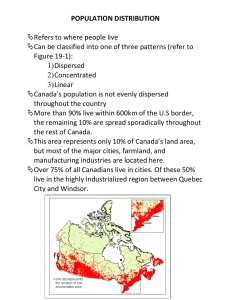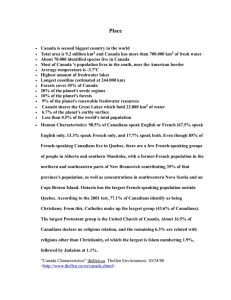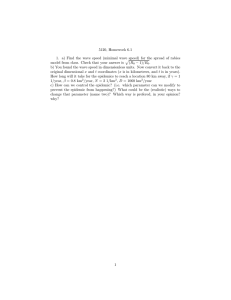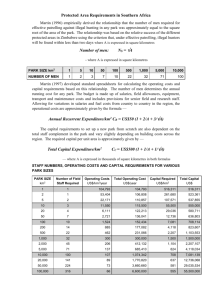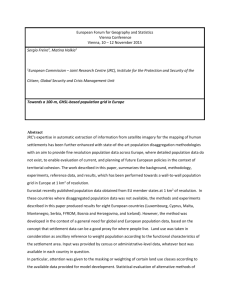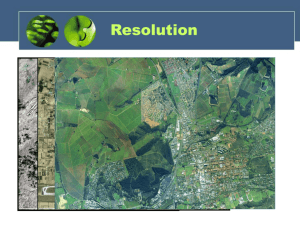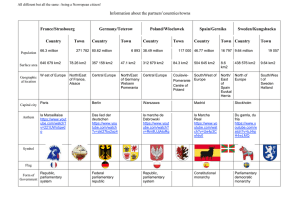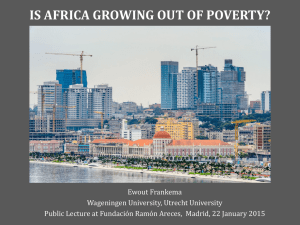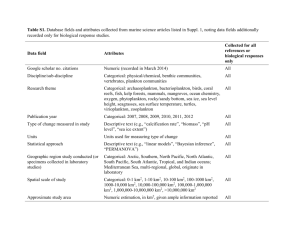Canada`s Settlement Patterns
advertisement
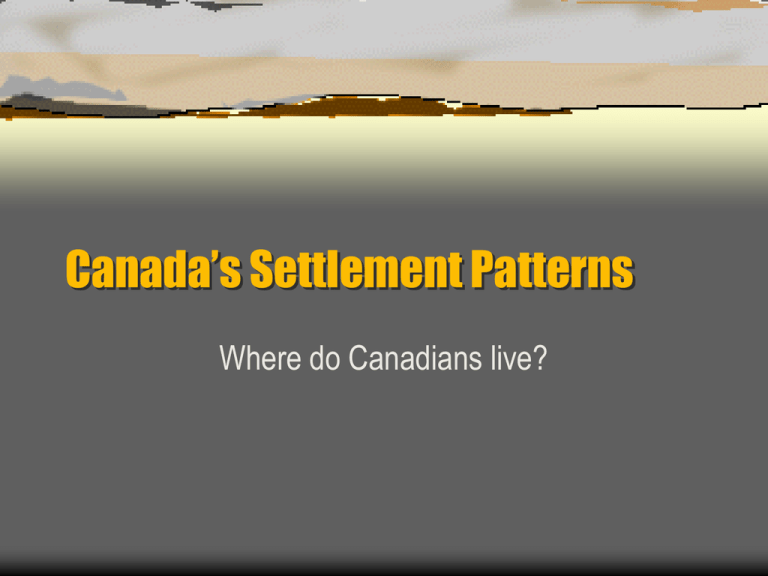
Canada’s Settlement Patterns Where do Canadians live? Population Discussion Where would you like to live in Canada? Why? Based on these responses, where do most Canadians live? Examples: 14 million people live in the Mixedwood Plains 300 people live in the Taiga Cordillera Therefore, settlement patterns in Canada vary from large cities to farming areas to vast areas where few people live. Population Change in Canada Urbanization in Canada Over the past 150 years, the ratio of Canadians living in urban areas vs. rural areas has reversed itself: 100% 80% 60% rural 40% urban 20% 0% 1851 1901 1951 2001 Why Has This Happened? A) Push Factors: - Mechanization of farms, forestry, mining, etc. meant fewer jobs available in rural areas. B) Pull Factors: - Jobs & wealth are increasingly concentrated in the cities New immigrants are generally professionals and want to live in cities What is the result? Canada's population is unevenly spread out Canada's settlement pattern is linear (US border) Over 90% of Canadians live within a 6 hour drive of the United States Almost 90% of Canada is empty of human settlement (less than 0.4 people / km2) Population Density A mathematical measure of the number of people living in each square kilometre of land. A measure of "how crowded" a place is. It tells us nothing about where people live. Population Density = Population Area Canada's Population Density = 31 500 000 people 9 992 000 km2 3.1 people / km2 Brampton's Population Density = 420 000 people 266.53 km2 1575 people / km2 Population Distribution Describes the pattern of where people live in a region or country Environmental and human factors can affect the distribution (i.e. water bodies, hills, railways, resource deposits, etc.). Each of these areas has a population density of 4 people / km2, but their population distribution is different ☻ ☻ ☻ ☻ ☻☻ ☻☻ ☻☻☻☻
